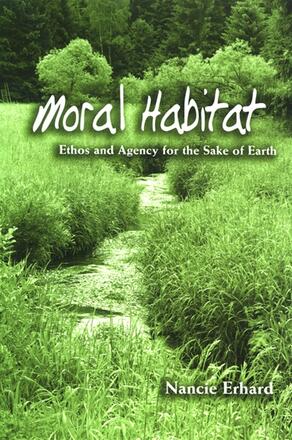
Moral Habitat
Ethos and Agency for the Sake of Earth
Alternative formats available from:
A work of environmental ethics that looks at how “otherkind”—and humankind—contributes to our moral imagination.
Description
Moral Habitat explores how our moral imaginations and moral norms have been shaped by and even cocreated with Earth in diverse biotic communities. Weaving together science and religion with indigenous and womanist traditions, Nancie Erhard uses examples from a variety of sources, including post-Cartesian science, the Old Testament, and the Mi´kmaq tribe of Eastern Canada. She demonstrates how each portrays the agency—including the moral agency—of the natural world. From this cross-cultural approach, she recasts the question of how we conceive of humans as moral agents. While written for "the sake of Earth," this thought-provoking book goes well beyond the issue of ecology to show the contribution that such an approach can make to pluralist ethics on a range of timely social issues.
Nancie Erhard is Assistant Professor of Comparative Religious Ethics at Saint Mary's University in Halifax, Nova Scotia.
Reviews
"Of interest to scholars and advanced students of environmental ethics and religion because of its sustained focus, rigorous scholarship, and numerous insights into how this reworking of our basic orientation may be profitably applied, this book deserves a wide readership." — Studies in Religion
"…Erhard has developed the idea of the moral habitat in a promising and creative manner." — Environmental Ethics
"This is a powerful work that achieves a radical undermining of anthropocentrism. The author's treatment of culture and the many ways it is generated and expressed is excellent." — Daniel C. Maguire, Marquette University